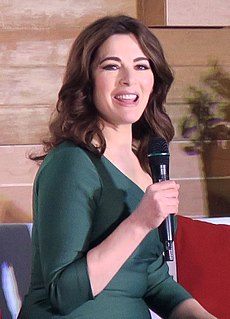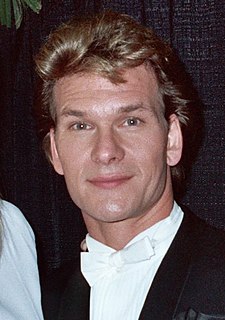A Quote by Nigella Lawson
It's true that I wouldn't have written the first book had my sister and mother been alive. It was my way of continuing our conversation. It's also this Jewish thing of naming and remembering people, and I think there is a sense of keeping that side of life going.
Related Quotes
Growing up in a Jewish matriarchal world inside the patriarchal paradise of Salt Lake City, Utah, gave me increased perspective on gender issues, as it also did my gay brother and my lesbian sister. Our younger sister is the perfect Jewish-American wife and mother, and is fiercely proud of that fact.
The idea of the book ["The Japanese Lover"] came in a conversation that I had with a friend walking in the streets of New York. We were talking about our mothers, and I was telling her how old my mother was, and she was telling me about her mother. Her mother was Jewish, and she said that she was in a retirement home and that she had had a friend for 40 years that was a Japanese gardener. This person had been very important in my friend's upbringing.
My mother always told me to embrace both sides of my background. And she also taught me one very useful thing when I was going to first grade. She said, "You're Bahamian and African-American on one side, and Russian-Jewish on the other. You're no more one than the other, and it's beautiful that you have all this. It makes your life all the more rich. But society will see you only as black."
When I've acted, and it's not been something I've written or have had at least a hand in writing, I do think there is a controlling side of me that is frustrated by that. And I actually don't think that it's a bad thing, because if I'm going to be in movies, in large part they're going to be movies that I write.
Before I wrote The Power of Now, I had a vision that I had already written the book and that it was affecting the world. I had a sense there was already a book somehow in existence. I drew a circle on a piece of paper and it said "book." Then I wrote something about the effect the book had on the world, how it influenced my life and other people's lives, and how it came to be translated into many languages affecting hundreds of thousands of people.
I think what is probably hard for people to imagine is how wrapped up the 17 years' work on Harry Potter is with what was going on in my life at the time. I was mourning the loss of this world that I had written for so long and loved so much. I was also mourning the retreat it had been from - from ordinary life, which it has been. And it forced me to look back at 17 years of my life and remember things.
I had written a book. For various reasons, the publishing industry had decided that my book was going to be 'important.' The novel had taken me 12-and-a-half years to write, and after being with the book for so long, I had no real perspective on the merits or demerits of what I had written. I hoped it was good, but feared that it wasn't.
When those you love die, the best you can do is honor their spirit for as long as you live. You make a commitment that you're going to take whatever lesson that person or animal was trying to teach you, and you make it true in your own life... It's a positive way to keep their spirit alive in the world, by keeping it alive in yourself.

































